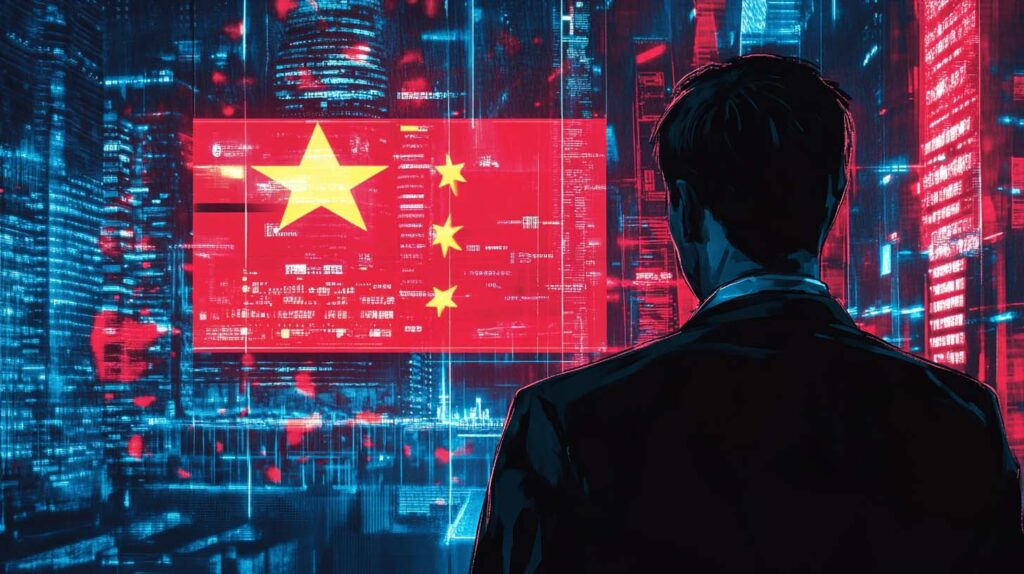
Confronting DeepSeek Fear Amid China’s Tech Rise
In recent years, China’s technological advancements have captured the world’s attention, with DeepSeek-a Chinese AI model-emerging as a focal point of both admiration and anxiety.
This duality reflects a deeper tension in how the United States perceives technological progress from China, revealing complex layers of fear, competition, and reflection.
A recent panel of experts at the University of Michigan’s Digital Studies Institute discussed the growing impact of these innovations, shedding light on the tensions that are defining the global technology race.
As journalist Jeff Yang, author of the “Golden Screen” described, China’s headlong rush into integrating AI and other technologies into societal functions like healthcare and security is seen by many in the West as a daunting stride.
“China is fearsome not just because it’s innovating but because it seems to be going much faster down that route of integrating technologies,” he said.
This rapid adoption is juxtaposed against Silicon Valley’s own enthusiasm for quick technological progression, yet when China embodies these ideals, it often triggers a profound existential threat perception.
DeepSeek stands as a symbol of this tension.
According to Tara Fickle, associate professor of Asian American studies at Northwestern University, DeepSeek is “innovation” and represents a remarkable shift from the traditional view that limits China to a manufacturing role. This shift creates “a sense of cognitive dissonance” as China surpasses expectations by innovating under constraints, challenging the established narrative of Western technological supremacy.
Further complicating the discourse is the concept of “techno-Orientalism,” as Fickle pointed out. This term describes how Western cultures view East Asia, especially Japan and China, through a lens that associates technology with exoticism, futurism and dehumanization. In this context, China serves as a “mirror of cultural conceit” that reflects Western anxieties-what the U.S. could become or what it might have been. These anxieties manifest in fears of data harvesting, surveillance and automation.
The technological success of DeepSeek scratches at these insecurities, presenting an uncomfortable reminder of the infusion of economic dynamism that Chinese innovation represents.
Ian Shin, U-M assistant professor of American culture, offered a historical perspective on these fears. By tracing the power dynamics between the U.S. and China over centuries, he suggested that the current apprehension mirrors historical patterns where foreign innovation sparked nationalistic backlash. One notable example is the case of Vincent Chin, a Chinese American murdered by two white men who were influenced by “Japanophobia” amid fears that Japan’s auto industry was overtaking the U.S. auto industry in the 1980s.
Shin’s perspective suggests that underlying these technological concerns is an innate reluctance to embrace the full implications of such advancements, particularly when they originate from a nation viewed as an ideological and economic competitor. This historical lens provides a context for why China’s technological achievements, exemplified by DeepSeek, resonate with both fear and a sense of lost opportunity.
Regarding security concerns, Shin said the concept of national security is often used by the U.S. government to justify policies, frequently in a manipulative way. He argued that this approach is rooted in a flawed zero-sum mentality, where one country’s gain must come at the expense of another’s. Instead, he advocates for a vision of security based on abundance and interdependence.
Yang expanded on this idea, highlighting how the concept of national security is often leveraged to legitimize xenophobic and racist policies, particularly against Asian Americans who often face suspicion, surveillance,and deportation. The fear of China’s technological advances is often projected onto Chinese Americans, reinforcing racial stereotypes and fostering an atmosphere of paranoia.
Fickle added that the rise of AI has introduced new complexities to national security concerns. She emphasized the need for critical thinking, digital literacy,and clearer metrics to protect individuals from manipulation. However, she said the tendency to displace these concerns onto China rather than addressing them directly undermines our ability to develop effective solutions.
https://news.umich.edu/navigating-the-fear-of-deepseek-and-chinas-technological-advancements/


